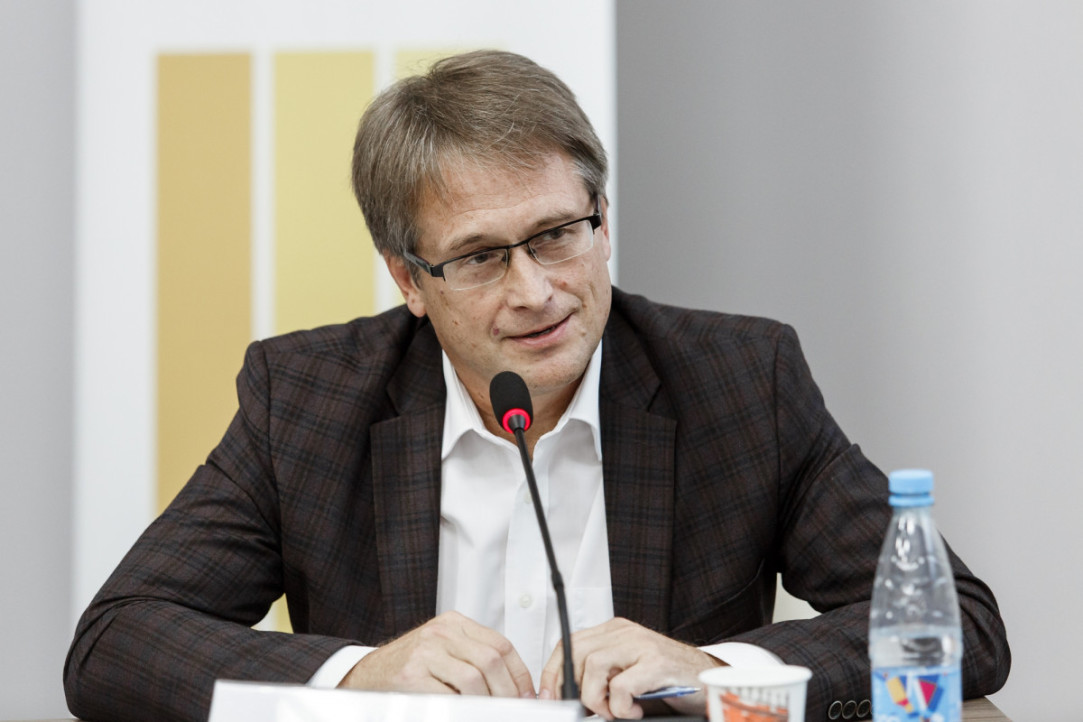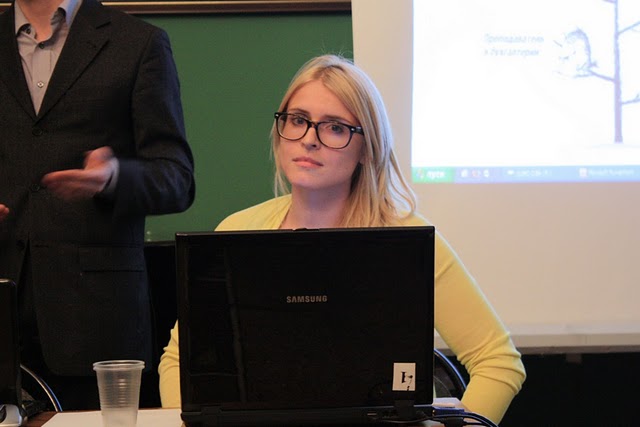Incompatible Alternatives: HSE Researchers on the Ambivalence of Power in the Twenty-first Century Economy

Ambivalence and a combination of contradictory principles are vividly manifested in the actions of government, its individual agents and institutions, as well as the everyday practices of economic subjects and citizens. The participants of the HSE Laboratory for Studies in Economic Sociology seminar discussed the book The Ambivalence of Power in the Twenty-First Century Economy: Cases from Russia and Beyond, recently published in the UK. Prepared by researchers from HSE University and foreign universities, the book focuses on the study of ambivalence in Russia and beyond.
Opening the seminar, HSE First Vice Rector Vadim Radaev, Department Head of the Laboratory for Studies in Economic Sociology (LSES) and one of the co-editors of the book, congratulated the authors on its publication by University College London.

He emphasised that although the authors used different data such as statistics, survey results, interview series, and other materials, all of the chapters focused on the ambivalent nature of power. He explained that the authors define ambivalence as a combination of incompatible alternatives in the actions of different actors. The term developed in psychology, where it reflected the combination of opposing emotions and dual feelings in an individual, such as love and hate, towards the same object. The individual characteristics were then transferred to interpersonal relations and from there to social norms. In the social sciences, including sociology, ambivalence is eventually understood not as the presence of contradictory norms, but as a situation arising from the interaction of different agents.
Vadim Radaev believes that ambivalence is part of power relations, which have never been limited to repression and are characterised by its combination with interaction, oscillating between global and local, formal and informal.
The authors of the book have studied ambivalence at different levels and focused on Russia, where state action permeates all levels of life. ‘However, this is not just a country case, it is an attempt to talk about the specifics of the social structure and to make a broader generalisation,’ he said.
According to the author of the foreword, Alena Ledeneva, Professor of Politics and Sociology at the School of Slavic and Eastern European Studies, University College London, many aspects of ambivalence escape the attention of researchers who study this phenomenon within a single discipline because of the peculiarities of methods and country differences.
Zoya Kotelnikova, Deputy Head of LSES, spoke about the evolution of Russian markets in the 2000s. She said that the domestic market of the 1990s was flooded with counterfeit and low-quality goods, and its transformation was encouraged by the influence of leading international brand owners. Brand owners are ambivalent about counterfeiting, weighing pros and cons and at certain periods preferring to ignore the proliferation of fakes, hiding their scale from consumers for fear of losing the market. However, they eventually began to fight against counterfeiting in Russia, involving the government and its institutions responsible for ensuring order on the market and consumer safety, building and launching appropriate mechanisms.

Leonid Kosals, Senior Research Fellow of LSES and author of the chapter on innovation diffusion and adoption, used facial recognition as an example to explain that an economically beneficial innovation can be morally questionable and destroy the values of society. Therefore, the same innovation could be a boon in one country or region and a detriment in others.
The use of facial recognition has had different effects in the US, Canada, Russia, and China. According to Leonid Kosals, it has led to opposite results in China and Canada, because in China the use of the system has no economic or ethical obstacles, while Canada has adopted a strict working law on personal data and established bodies that closely monitor its implementation and respect for personal rights. The HSE expert also noted that Russia has laws similar to those in the US and Europe, but they are not fully effective because basic values are ambivalent and social immunity and control over possible violations of personal integrity do not work as well as they do in the US or Europe.
Vadim Radaev talked about ambivalence in economic interaction. The work is based on surveys of 2,200 retailers and their suppliers conducted in 2013, 2016, and 2019. It appeared that 75% of those surveyed have unreliable partners, with 25% reporting regular breaches of deadlines or price changes, and the level of competition and government contacts having little impact on supplier reliability. The most serious factor that increases the reliability of contractors, as the survey shows, is personal relationships between managers and long-term cooperation.
LSES Senior Research Fellow Denis Strebkov and his colleague Andrey Shevchuk wrote a chapter on ambivalence in the relationship between freelancers working on different platforms and their customers. Denis Strebkov explained that parties often do not conclude a contract because of the low price of some services or the urgency of the work; moreover, it is not uncommon for the customer and the contractor to live in different regions or even countries, so platforms offer their own regulatory options—‘risk-free deals’ or other insurance instruments.
According to Denis Strebkov, beginners use remote work exchanges to get their first orders and insure their deals, experienced performers conclude contracts, while most freelance workers conclude verbal or informal deals, and the market remains informal.
Tamara Kusimova, Analyst at the HSE Centre for Cultural Sociology, spoke about import substitution practices using the example of new domestic brands and their perception by consumers and producers. According to her, food production has become a more media-driven topic in recent years, with many people caring about where products are produced and who profits from their production.
Regina Resheteeva (Romanova), an independent sociologist and graduate of HSE University with a degree in Sociology, spoke about consumer ambivalence, which combines support for government foreign policy with the need to overcome their own economic problems due to higher food prices caused by foreign sanctions and Russian counter-sanctions.
She used in-depth interviews to conclude that people embed a political agenda in consumption while simultaneously constructing their own subjectivity and practices of individual resistance to turmoil caused by political events in order to maintain autonomy. They support government policy, while noting that food quality has deteriorated, blaming vendors and government agencies responsible for economic growth and price control. Regina Resheteeva believes that this can be explained by the term ‘consumer cynicism’.
Professor Marek Dabrowski, Department of Applied Economics, HSE Faculty of Economic Studies, presented a chapter on the relationship between economic freedom and democracy in post-Soviet countries. Maria Tysiachniouk (University of Eastern Finland) gave a presentation on the chapter that she had prepared with Sara Teitelbaum (University of Montreal), Andrey Petrov (University of Northern Iowa) and Leah Horowitz (University of Wisconsin-Madison). Other speakers at the seminar included: Professor Evgenia Balabanova, Deputy Director of the HSE Center for Social Organization and Business Research, Associate Professor Ivan Pavlyutkin, School of Sociology, HSE Faculty of Social Sciences, Elena Berdysheva, Senior Research Fellow of LSES, Maria Denisova, PhD student at Maastricht University (Netherlands) and an HSE graduate student in Sociology, Alexander Kurakin, LSES Senior Research Fellow, LSES Research Assistant Daria Lebedeva, Alexey Pobedonostsev, Researcher at the European Institute of the University of Florence (Italy), and Valery Ledyaev, Professor of the HSE Faculty of Social Studies.
Evgenia S. Balabanova
Deputy Director, Centre for Social Organization Research of Labour and Business
Elena Berdysheva
Senior Research Fellow, Laboratory for Studies in Economic Sociology
Marek Dabrowski
Professor, Department of Applied Economics
Leonid Kosals
Senior Research Fellow, Laboratory for Studies in Economic Sociology
Zoya Kotelnikova
Deputy Head, Laboratory for Studies in Economic Sociology
Tamara Kusimova
Analyst, Centre for Cultural Sociology
Daria Lebedeva
Research Assistant, Laboratory for Studies in Economic Sociology
Valery Georgievich Ledyaev
Leading Research Fellow, Research and Study Laboratory for Studies in Business Communications
Ivan Pavlyutkin
Associate Professor, Department of Economic Sociology
Vadim Radaev
HSE First Vice Rector
Denis Strebkov
Associate Professor, Department of Economic Sociology
Andrey Shevchuk
Associate Professor, Department of Economic Sociology

